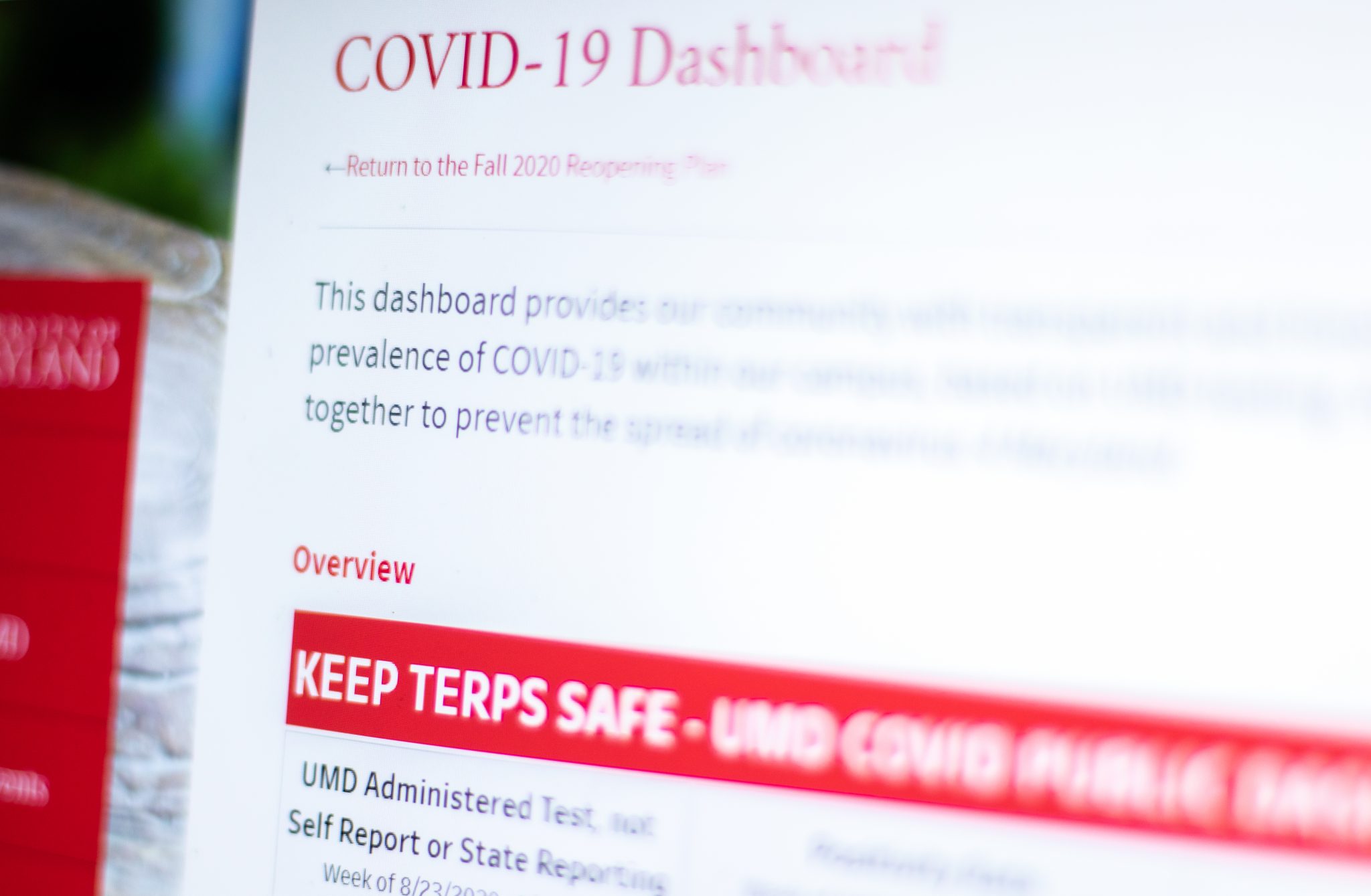Views expressed in opinion columns are the author’s own.
As we experience the third wave of the COVID-19 pandemic, the same safety fears that have been at play this semester — concerns about the coronavirus’ spread on the campus and to vulnerable people in our community — are intensifying. In response, the University of Maryland has moved all classes online for the remainder of the semester, and the university has also informed students who live in dorms that they may not return if they travel home over Thanksgiving. While many of us have been observing the surge of COVID-19 cases with concern, the sudden university policy shifts have left many students scrambling.
Although students might still have some time to rearrange their travel and housing situations, when they get infected with the coronavirus (if at all) while living on the campus is beyond any student’s control. This problem became even more pressing after the Department of Resident Life emailed students last week that on-campus isolation housing will close on Dec. 8 — two weeks before dorms will shut down for the semester.
This puts students who test positive on or after that day in the difficult and scary position of finding somewhere to self-isolate where they will not risk infecting others, especially those who are at higher risk of experiencing serious complications or death. If this university made the decision to keep dorms open and hold some in-person classes, then it has the responsibility to not abandon on-campus students by closing quarantine housing two weeks before dorms close. Doing so sets many students up for failure when it comes to containing the virus, especially students who have to travel home and risk infecting others and those who do not have permanent housing.
Currently, out-of-state students and international students living in dorms are the most at-risk from this new policy. If these students test positive on or after Dec. 8, they could be faced with the impossible choice of traveling to their “permanent residence or elsewhere” and spreading the virus. This would add even more pressure to students who would already have to deal with the consequences of being infected with COVID-19. It is reprehensible that these students and those outside the campus community are being forced to deal with the dangerous effects of such a half-baked, last-minute policy.
When they announced the closing date of quarantine housing, Resident Life and other administrative entities should have released a plan detailing how they’d accommodate non-local students who aren’t able to return home. All students, especially non-local students who are already being forced to change their plans for the semester, deserve transparent and prompt communication regarding COVID-19 protocols — and this university should make every effort to ensure students know they’ll have a safe place to stay.
Even though non-local students are the most at-risk due to the early closure of on-campus isolation housing, local students and housing insecure students will be harmed as well. For local students who have access to stable housing, testing positive for COVID-19 would mean scrambling to return home two weeks early while trying not to infect others. If these students live with elderly or immunocompromised people, returning home upon testing positive could seriously endanger others’ lives. Not everyone has access to a space off-campus where they can safely isolate. This is also an issue for housing insecure students; without access to a stable home off-campus, self-isolation is practically impossible. This not only poses a risk to students who become infected — it’s also a public health risk.
Ultimately, this university’s administration made the decision to open the dorms and hold some in-person classes this fall, despite knowing the semester could be cut short at any time due to another surge in COVID-19 cases. Now this surge is happening, and the administration must work to contain the spread of the virus among its student body for the health of students and the wider community. Closing isolation housing two weeks early without considering the impossible position students are being placed in at the last minute is extremely irresponsible. In the face of another COVID-19 wave, we need leadership, not abandonment.
Caterina Ieronimo is a junior government and politics major. She can be reached at ieronimocaterina@gmail.com.



